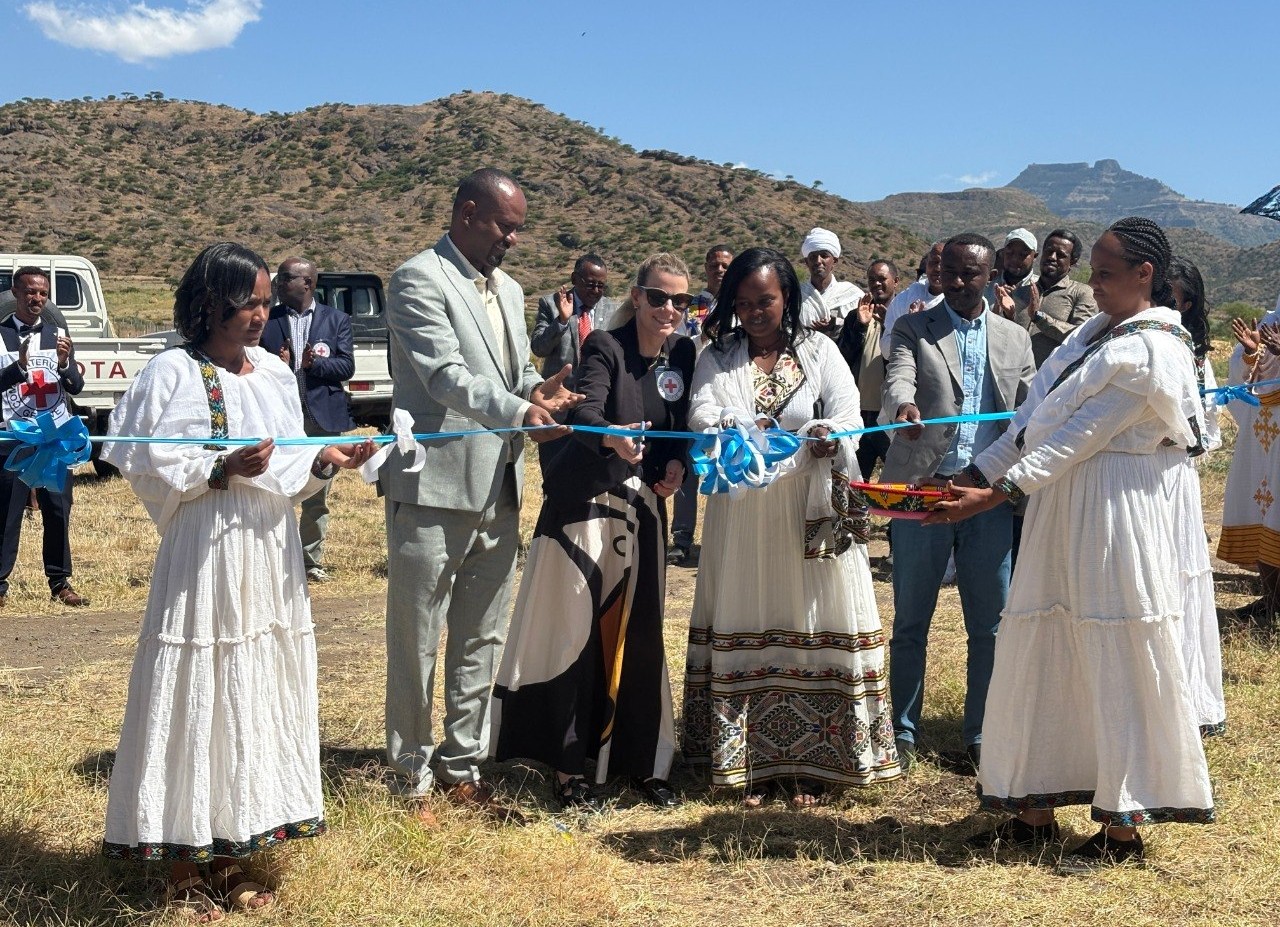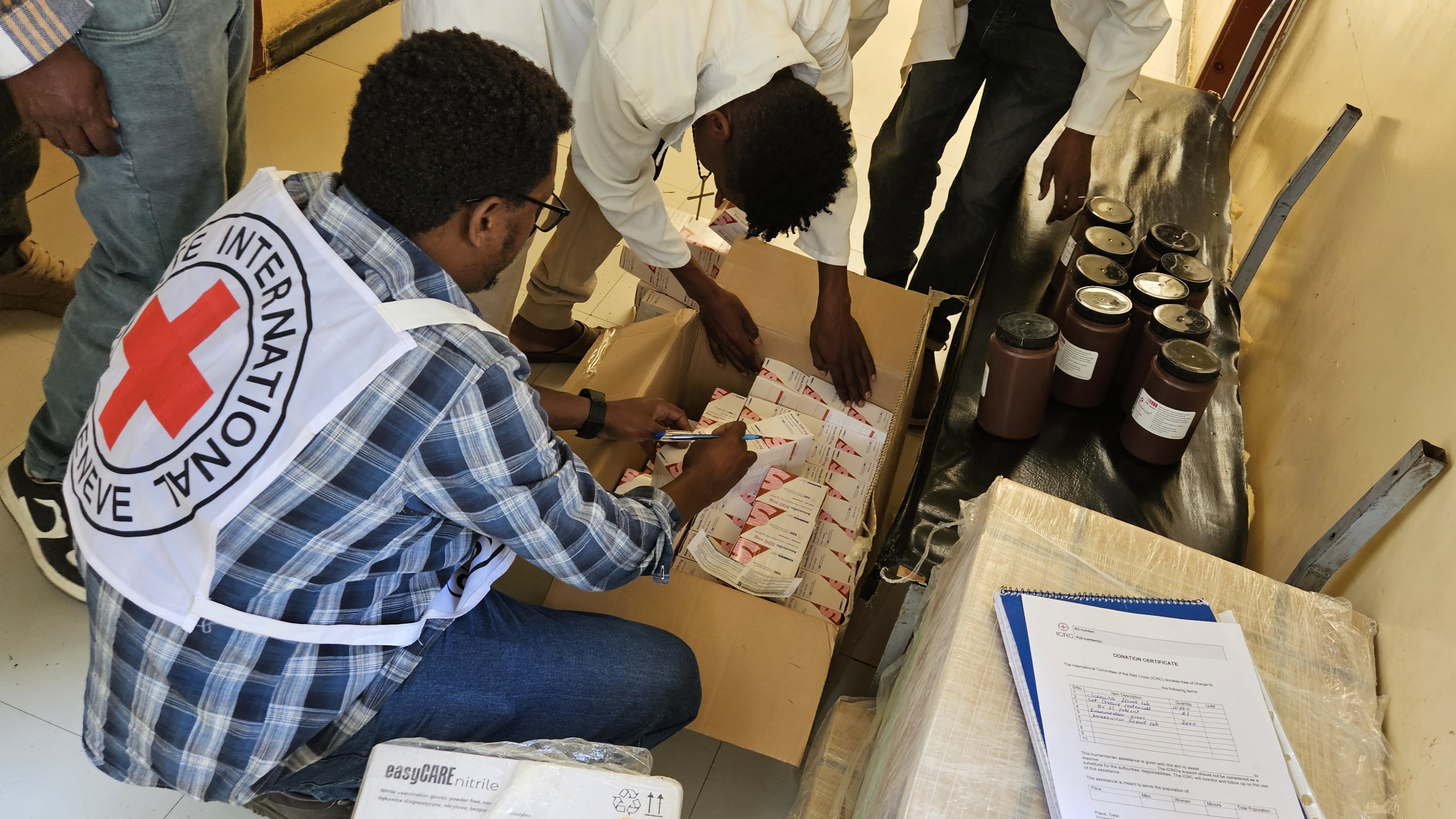Ethiopia: Amid rising humanitarian needs in Amhara, 77,000 people in Lalibela regain access to safe water
This water project was launched over three years ago to address severe water shortages in the town, due to the then raging hostilities in northern Ethiopia and to unreliable power supply. “We are glad that Lalibela’s residents can finally get reliable access to water, after prolonged, intense works together with the local and regional water authorities”, says Simone Casabianca-Aeschlimann, the Head of the ICRC’s Delegation in Ethiopia.
“The security conditions have been challenging, and we needed to purchase materials from abroad, but the result is there: a robust water system, with lower operating costs, and a reduced environmental footprint thanks to solar power.” 15 water utility staff have been trained on how to operate and maintain the new system, which is now handed over to the authorities. The ICRC will continue to monitor the project for another six months and provide technical support when necessary.

Lalibela’s surroundings have been impacted by recent fighting, and tensions remain, but the town itself has been spared.
In remote villages of Lalibela’s North Wollo zone, and other hard-hit areas of Amhara, communities struggle to get proper health care. Due to blockages, ambulances such as those from the Ethiopian Red Cross Society cannot evacuate wounded and sick people appropriately. Civilians in need of basic services are obliged to walk long distances, often in a highly insecure environment.
“We discuss these issues with those involved in the conflict, stressing that people’s safe access to health care is essential to save lives,”
Simone Casabianca-Aeschlimann explains.

As part of its support for communities’ access to health care, the ICRC has donated medicines and medical supplies to 33 health facilities throughout the region, to complement services by the authorities and in coordination with them. Upon receiving this support in early November, a nurse in the Sanja hospital of Central Gondar said with relief: “We no longer need to ask patients to purchase medicines from outside the facility.”
In Amhara, the ICRC also supports the treatment and physical rehabilitation of weapon wounded people, and visits detainees on both sides to monitor their treatment and conditions of detention.
The armed conflict between the Ethiopian armed forces and the Amhara Fano armed group is ongoing since August 2023. The ICRC continues its emergency response in humanitarian priority areas in Amhara. It stands ready to serve as a neutral intermediary in humanitarian operations crossing frontlines, as it did early October 2025 in North Wollo undertaking life-saving medical evacuations.
From January to October 2025, ICRC teams in the Amhara region provided a wide range of humanitarian activities liked to the current conflict situation.
The ICRC notably supported health facilities to provide:
- Curative care in 14 primary health centres for 89,500 patients in conflict-affected areas
- Surgical or other medical treatment in 13 hospitals for over 3,300 wounded or sick patients, mostly referred from the primary health centres
- Safe deliveries and management of complications for over 3,600 pregnant women
- Medical treatment for almost 600 survivors of sexual violence in six one-stop centres and other health facilities
- Services for almost 750 conflict-affected persons with disabilities in two physical rehabilitation centres in the region, in Bahir Dar and Dessie. The ICRC also extensively renovated the Bahir Dar Physical Rehabilitation Centre.
The ICRC organised health training for three surgeons from Amhara hospitals on trauma and reconstructive surgery, in collaboration with the Alert Hospital in Addis Ababa, and for 47 other health professionals in Amhara on basic emergency care.
In the same period, the ICRC improved access to water for almost 230,000 people in Amhara:
- 77,000 inhabitants of Lalibela, through the now completed solar water project, financed at around 50% by the German Federal Foreign Office
- Around 150,000 people living in rural areas, through the renovation and construction of water systems, including hand pumps
Since the beginning of 2025, in Amhara, ICRC delegates carried out 10 visits to persons deprived of liberty in relation with the armed conflict in six different places of detention, two of them under the responsibility of the Amhara Fano non-State armed group.
Legal Disclaimer:
EIN Presswire provides this news content "as is" without warranty of any kind. We do not accept any responsibility or liability for the accuracy, content, images, videos, licenses, completeness, legality, or reliability of the information contained in this article. If you have any complaints or copyright issues related to this article, kindly contact the author above.
